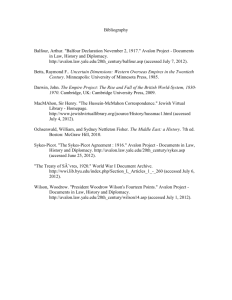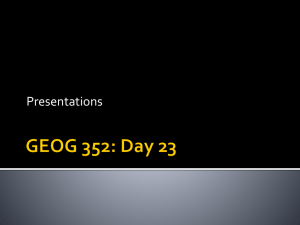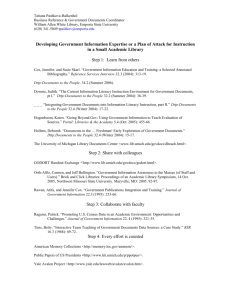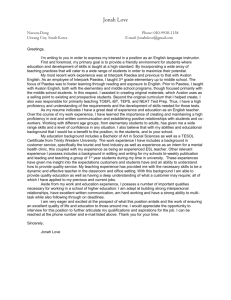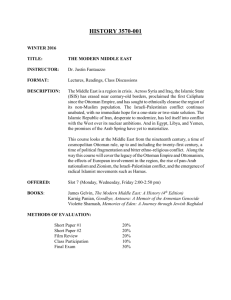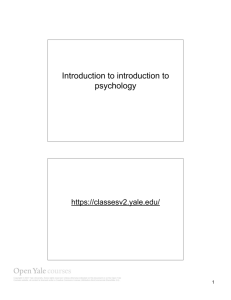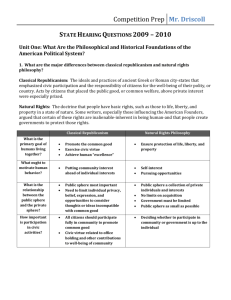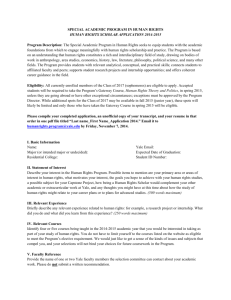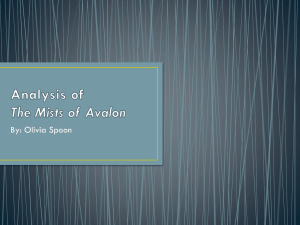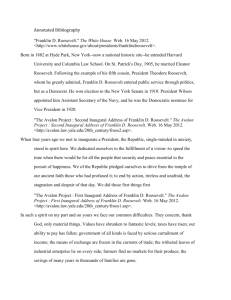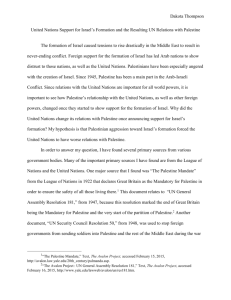The Modern Middle East Value 1.0
advertisement
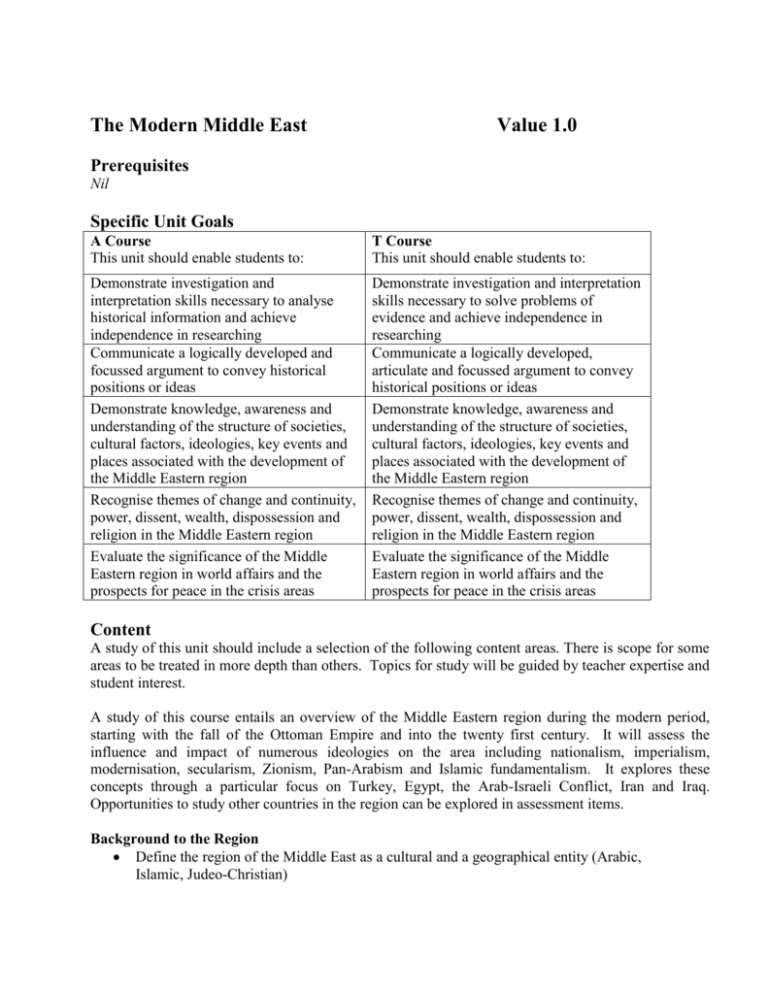
The Modern Middle East Value 1.0 Prerequisites Nil Specific Unit Goals A Course This unit should enable students to: T Course This unit should enable students to: Demonstrate investigation and interpretation skills necessary to analyse historical information and achieve independence in researching Communicate a logically developed and focussed argument to convey historical positions or ideas Demonstrate knowledge, awareness and understanding of the structure of societies, cultural factors, ideologies, key events and places associated with the development of the Middle Eastern region Recognise themes of change and continuity, power, dissent, wealth, dispossession and religion in the Middle Eastern region Evaluate the significance of the Middle Eastern region in world affairs and the prospects for peace in the crisis areas Demonstrate investigation and interpretation skills necessary to solve problems of evidence and achieve independence in researching Communicate a logically developed, articulate and focussed argument to convey historical positions or ideas Demonstrate knowledge, awareness and understanding of the structure of societies, cultural factors, ideologies, key events and places associated with the development of the Middle Eastern region Recognise themes of change and continuity, power, dissent, wealth, dispossession and religion in the Middle Eastern region Evaluate the significance of the Middle Eastern region in world affairs and the prospects for peace in the crisis areas Content A study of this unit should include a selection of the following content areas. There is scope for some areas to be treated in more depth than others. Topics for study will be guided by teacher expertise and student interest. A study of this course entails an overview of the Middle Eastern region during the modern period, starting with the fall of the Ottoman Empire and into the twenty first century. It will assess the influence and impact of numerous ideologies on the area including nationalism, imperialism, modernisation, secularism, Zionism, Pan-Arabism and Islamic fundamentalism. It explores these concepts through a particular focus on Turkey, Egypt, the Arab-Israeli Conflict, Iran and Iraq. Opportunities to study other countries in the region can be explored in assessment items. Background to the Region Define the region of the Middle East as a cultural and a geographical entity (Arabic, Islamic, Judeo-Christian) The significance of religious influences (Islam -Sunnis and Shiites, Judaism and Christianity) on the region The Collapse of the Ottoman Empire The significance and collapse of the Ottoman Empire (the influence of nationalism in the region and the rise of new nation states) The introduction of modernisation and secularism in the region (Turkey under Kemal Ataturk) The impact of World War I and the emergence of the Mandate system Palestine/Israel Religious claims to the territory of Palestine (Torah, Koran) The emergence of Zionism and its implications for the Middle East The role of Britain in the region (World War I, the Balfour Declaration) The Mandate (Arab responses, Jewish migration and activism, impact of the Holocaust) Partition and the 1948/1949 War The political implications of the creation of Israel on the Middle East (the 1949 armistice and future strained relations) Nasser and Arab Nationalism The rise of Nasser in Egypt and the implications of Pan-Arabism on the region The role of the Superpowers in the region (e.g. the Cold War, the Baghdad Pact, the Shah and Mossadeq) The Arab-Israeli Wars, 1956, 1967, 1973 The Oil Weapon The rise of Palestinian nationalism and the PLO The Middle East in Transition The role of the UN (Resolution 242 etc) The Camp David Accords and the implications for the region The Islamic Revolution in Iran and the Iran-Iraqi War The War in Lebanon Saddam Hussein and the First Gulf War The Oslo Accords and the road to Palestinian Statehood Middle East: A search for resolution? The rise and causes of Islamic Fundamentalism (e.g. beliefs, goals, tactics) September 11 and the War on Terror The Second Gulf War Prospects for Peace and Resolution in the region (the Occupied Territories, the role of the UN, the dependence on oil) Teaching and Learning Strategies Relevant and effective strategies will focus on investigating and interpreting evidence in: Primary sources – e.g. diaries, posters, cartoons, letters, photographs, historical maps Secondary sources –e.g. biographies, texts, documentaries, film and historical novel treatments of indigenous life and slavery Statistical data – e.g. maps, charts, graphs. Kinaesthetic activities, e.g. role plays and imaginative reconstructions of key events, model making and visits to institutions, films, artistic interpretations or historic sites may also be used to investigate and interpret evidence Visits to relevant museums, galleries, the Centre for Arab and Islamic Studies, the Jewish centre etc. Guest speakers when available and appropriate. Findings will be communicated through: Writing – e.g. essay writing, document studies, empathetic exercises Oral and aural activities –e.g. class discussions, debates, guest speakers, oral histories, group work, quizzes ICT – e.g. web quests, spreadsheet analyses, computer games, PowerPoint presentations, Internet searches. See Teaching and Learning Strategies in the main document and the History Course Framework for other teaching strategies. Assessment Task Types See pages 72-74 for assessment information Student Capabilities Student Capabilities creative and critical thinkers enterprising problem-solvers skilled and empathetic communicators informed and ethical decision-makers environmentally and culturally aware citizens confident and capable users of technologies independent and self-managing learners collaborative team members Evidence could be in: Goals Content Teaching Assessment and Learning √ √ √ √ √ √ √ √ √ √ √ √ √ √ √ √ √ √ √ Specific Unit Resources This list is not to be seen as comprehensive. It seeks to identify some useful resources and to give an indication of the level at which students are expected to work. These resources include studentcentred resources and teacher references. These were accurate at the time of publication. Books Abrahamian, E., Aburish, S. K, History of Modern Iran, Cambridge University Press, 2008 Nasser: The Last Arab, Gerald Duckworth & Co Ltd, 2005 Alexander, A., Ali, Tariq Andersen, R. R, Seibert, R.F, and Wagner, J. G., Balfour, J. K., Blin, Ar. and Gerard C. (Ed)., Bunton, M and Cleveland, W., Coughlin, C., Dershowitz, Alan Downing, D. Esposito, J. L., Ewans, M., Flower, R., Fouad Khater, Akram Fromkin, D., Gelvin, J. L., Goldschmidt Jr, A. and Davidson, L., Greer, V. & Darlington, R. Held, C. C., Hourani, A. and Malise. R., Khalidi, R., Kinzer, S., Nasser (Life&Times), Haus Publishing Limited, 2005 The clash of fundamentalism: crusades, jihads and modernity, Verso, 2003 Politics and Change in the Middle East (9th Edition), Longman, 2008 Ataturk: The Rebirth of a Nation, Weidenfeld & Nicolson History, 2001 The History of Terrorism: From Antiquity to al Qaeda, University of California Press, 2007 A History of the Modern Middle East, Perseus, 2009 Saddam: His Rise and Fall, Ecco, 2005 The case for peace: how the Arab-Israeli conflict can be resolved, Wiley, 2005. The Making of the Middle East, Raintree, Oxford, 2006. Unholy War: Terror in the Name of Islam, Oxford University Press, 2003 Afghanistan: A Short History of Its People and Politics, Perennial, 2003 Napoleon to Nasser: The Story of Modern Egypt, Author House, 2002 Sources in the History of the Modern Middle East, Wadsworh Publishing Company, 2010 A Peace to End All Peace: The Fall of the Ottoman Empire and the Creation of the Modern Middle East, Holt McDougal, 2009 The Modern Middle East: A History, Oxford University Press, 2007 A Concise History of the Middle East, Westview Inc, 2009 Flashpoints: National & International Studies, Heinemann, Victoria, 2003. Middle East Patterns: Places, Peoples, and Politics, Westview Press, 1989 A History of the Arab Peoples: Second Edition, Faber and Faber, 2005 The Iron Cage: The Story of the Palestinian Struggle for Statehood, Oneworld Publications, 2009 Crescent and Star: Turkey Between Two Worlds, Lapidus, Ira M Laqueur, W and Rubin, B., Lewis, B., Little, D. Mango, A., Mansfield, P and Pelham, N., Milton-Edwards, B. Farrar, Straus & Giroux Inc, 2009 A History of Islamic Societies, Cambridge University Press, 2002 The Israel-Arab Reader: A Documentary Hisotry of the Middle East Conflict, Penguin, 2008 What Went Wrong?: The Clash Between Islam and Modernity in the Middle East, Harper Perrenial, 2004 American Orientalism: The United States and the Middle East since 1945, University of California Press, 2008 Ataturk The Biography of the Founder of Modern Turkey, Overlook Press, 2002 A History of the Middle East, Penguin, 2004 Contemporary Politics in the Middle East, Polity Press, 2006, UK Milton-Edwards, B. & Conflicts in the Middle East since 1945, Routledge, Hinchclifee, P London, 2001. Minnis, Ivan The Arab-Israeli conflict, Heinemann, 2001. Nydell, M. K,. Understanding Arabs: A Guide for Modern Times, Intercultural Press Inc, 2005 Piggott, Leanne The Arab-Israeli conflict: a timeless struggle, Science Press, 2008. Quataert, D., The Ottoman Empire, 1700-1922 (New Approaches to European History), Cambridge University Press, 2005 Sherbrok, D. & El Alami, D. Problems & Issues in Modern History, Oxford University Press, Australia, 1997. Spencer, W., Global Studies: The Middle East, McGRaw Hill Higher Education, 2006 Taheri, A., The Persian Night: Iran under the Khomeinist Revolution, Encouter Books, 2008 Takeyh, R., Guardians of the Revolution: Iran and the World in the Age of the Ayatollahs, Oxford University Press, 2009 Tripp, C., A History of Iraq, Cambridge University Press, 2007 Woolf, Alex Fundamentalism, Wayland, 2003. Audio-Visual The Middle East VHS, Gaumont, France, 1991. A fundamental conflict VHS, Antelope Films, 1990. Websites Avalon Project ‘The Middle East 1916-2001: A Documentary Record’ Yale University http://avalon.law.yale.edu/subject_menus/mideast.asp Avalon Project ‘The Palestine Mandate’ http://avalon.law.yale.edu/20th_century/palmanda.asp Israeli Ministry of Foreign Affairs http://www.mfa.gov.il/MFA/Peace+Process/Guide+to+the+Peace+Process/ The+Balfour+Declaration.htm Avalon Project ‘Balfour Declaration’ Yale University http://avalon.law.yale.edu/20th_century/balfour.asp Australian War Memorial -Ataturk http://www.awm.gov.au/encyclopedia/ataturk.asp BBC http://www.bbc.co.uk/history/historic_figures/ataturk_kemal.shtml Wheeling Jesuit University/Center for Educational Technologies - ‘Global perspectives: The Middle east’ http://www.cotf.edu/earthinfo/meast/MEhis.html www.aljezeerah.com Australian War Memorial Encyclopedia: Ataturk (Mustafa Kemal), viewed 22 September, 2009, http://www.awm.gov.au/encyclopedia/ataturk.asp, 2009. The Avalon Project The Avalon Project The Middle East 1916-2001: A Documentary Record, Yale University: Lillian Goldman Law Library, viewed 22 September, 2009, http://avalon.law.yale.edu/subject_menus/mideast.asp, 2008. The Palestine Mandate, Yale University: Lillian Goldman Law Library, viewed 22 September, 2009, http://avalon.law.yale.edu/20th_century/palmanda.asp, 2008. Internet Modern History Source Book ‘Middle East Since 1914’, Internet History Sourcebooks Project, viewed 22 September, 2009, http://www.fordham.edu/halsall/mod/modsbook54.html , 2007. Israeli Ministry of Foreign Affairs The State of Israel, viewed 22 September, 2009, http://www.mfa.gov.il/MFA, 2008. Wheeling Jesuit University Global Perspectives: A remote sensing & world issues site, ‘The Middle East’, viewed 22 September, 2009, http://www.cotf.edu/earthinfo/meast/MEhis.ht ml, 2002. Shah, Anup Global Issues: Middle East, viewed 22 September, 2009, http://www.globalissues.org/issue/103/middleeast, 2009. These were accurate at the time of publication. Please see the Bibliography on page 31 of Part 1 of the course for further resources.
